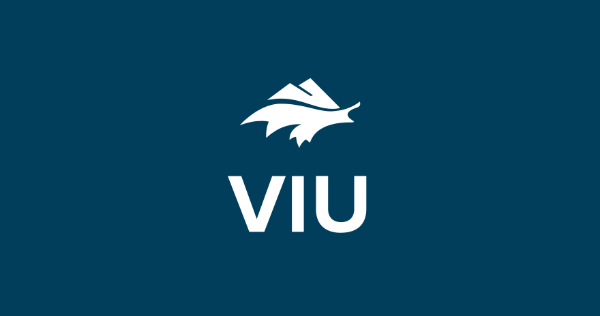Course Info
Are you ready for a career that satisfies your love for the environment and gets you outside in the field, conserving and enhancing aquaculture in lakes, rivers and the ocean? Vancouver Island University’s close proximity and relationship with Fisheries and Oceans Canada have developed the Fisheries and Aquaculture Technology program into one of the best of its kind.
Students receive expert instruction from leading aquaculture specialists fishery officers and marine biologists and take part in a hands-on practicum experience, spending more than a quarter of their training out in the field. There are numerous special awards specifically for Fisheries and Aquaculture students, ranging in value from $300 to $2,500.
The Fisheries and Aquaculture Technology Diploma Program
The program is designed to develop well-rounded technologists with a broad background in the practical and academic skills of fish and invertebrate culture, fisheries habitat and fish stock assessment, fisheries regulations, production management, and environmental control and planning.
Both the “why” and “how” are presented through formal lectures and practical experience. The selection of program material is designed to give a broad theoretical background to provide flexibility, as well as foster a professional attitude toward a future career. Students will spend approximately 25 per cent of their time on “hands-on” fisheries and aquaculture projects on- and-off campus.
The first year provides a foundation in such basic conceptual areas as statistics, biology, English, habitats of fish and fish rearing methods. There is a weekly practicum, in which students are sent into the field for a day to work in various aquacultural, fisheries, or environmental consulting capacities (salmonid hatcheries, spawning channels, wild fish projects, oyster farms, invertebrate hatcheries and others), and students also work one half day each week on aquaculture or fisheries field projects on campus or in the field. Many courses also involve significant field experience. Over the two years this practical work experience exposes students to a wide variety of activities, and introduces them to the facilities, organizations and personnel important in their future careers.
As a requirement for the program, students will work in a program relevant summer job in the summer between their first and second year. Assistance in finding jobs is provided by VIU Faculty and staff, and students will receive credit for the summer practicum courses on completion of required written reports and/or oral presentation.
In the second year, students are exposed to more advanced and specialized topics in fisheries and aquaculture. These include engineering courses, shellfish culture, and both health and physiology of aquatic organisms. In addition, there is a field based course on freshwater field techniques in which students work in field conditions at local lake sites. Both the second-year weekly practicum and project courses may be designed by the student to emphasize areas of special interest.
In addition to the many scholarships available to all VIU Students, there are numerous special awards for Fisheries and Aquaculture students. For more information contact the Financial Aid & Awards office.
There is also a one-year, post-degree diploma program for university graduates with degrees in biology, zoology, or related sciences. In this case, students complete the requirements for the diploma in one year, plus one summer practicum (see below for admission requirements).
Careers in fisheries and aquaculture typically involve both outdoor work related to the rearing or assessment of aquatic stocks, and indoor activities related directly to field or support activities, including personnel and business management. Aquaculture is usually practiced in relatively remote areas.
It should be noted that the skills required for both the aquaculturist and the field fisheries technician broadly overlap, and that aquaculture plays an increasingly important role in wild stock management through the employment of hatcheries and fish stock enhancement. Students in this program are prepared for both career areas and after graduation frequently work in both.
Other placements include laboratory, sales, research and international opportunities. Many career opportunities are available to graduates willing to work in outdoor conditions, often in remote areas. Such work often includes field work with wild stocks including habitat assessment in both fresh and salt water, estimates of wild stock population, habitat restoration, research assistance, and monitoring of harvests.
Diploma
Based on course availibility
Open
January, September
Grade 12th Overall 55% required.Grade 12th Math’s 70% required.
IELTS: 6.5 (no band below 6.0) TOFEL: PTE: 60 (no section below 60)
2 Years
CAD$ 28134.96
*Price shown is for indicative purpose, please check with institution
N/A
Nanaimo
Here are some scholarship that are available at The Vancouver Island University.
Combined Adrienne Marshall English Scholarship and Barry Marshall Science Scholarship
Tuition Fee Scholarship
For further details, please contact the university website.
- Be students at the Beijing Huija Private School;
- meet all entry requirements normally applied to the English Language Bridging course and the Bachelor of Science1 course;
- not be Australian citizens or permanent residents of Australia; and
- be liable for international full fees.
All international
Combined Adrienne Marshall English Scholarship and Barry Marshall Science Scholarship
Tuition Fee Scholarship
For further details, please contact the university website.
- Be students at the Beijing Huija Private School;
- meet all entry requirements normally applied to the English Language Bridging course and the Bachelor of Science1 course;
- not be Australian citizens or permanent residents of Australia; and
- be liable for international full fees.
All international


